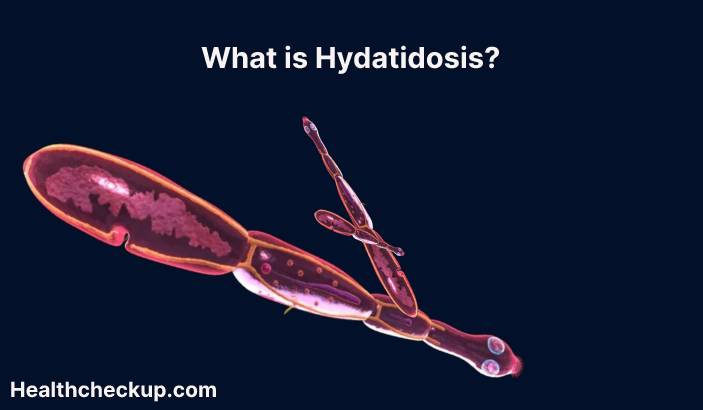Hydatidosis, also known as echinococcosis, is a parasitic infection caused by the tapeworm Echinococcus. The tapeworm is found in the intestines of dogs, wolves, and other carnivores and is transmitted to humans through contact with contaminated feces or soil.
There are two main types of hydatidosis: cystic and alveolar. Cystic hydatidosis affects the liver, lungs, and other organs and is the most common form of the infection. Alveolar hydatidosis affects the lungs and is less common.
Symptoms of hydatidosis may include abdominal pain, nausea, vomiting, fever, and weight loss. In some cases, there may be no symptoms at all. The infection is usually diagnosed through a blood test or imaging tests, such as CT or MRI.
Treatment for hydatidosis may include medications to kill the parasites, surgery to remove the cysts, and preventive measures to reduce the risk of re-infection. These measures may include deworming dogs and other carnivores, avoiding contact with contaminated feces or soil, and washing hands thoroughly after handling animals or soil.
To prevent hydatidosis, it is important to practice good hygiene, such as washing your hands frequently with soap and water, especially after handling animals or soil. It is also important to deworm dogs and other carnivores regularly to reduce the risk of infection.
In conclusion, hydatidosis, also known as echinococcosis, is a parasitic infection caused by the tapeworm Echinococcus. It is transmitted to humans through contact with contaminated feces or soil and can affect the liver, lungs, and other organs. Symptoms of hydatidosis may include abdominal pain, nausea, vomiting, fever, and weight loss. Treatment may include medications, surgery, and preventive measures to reduce the risk of re-infection. To prevent hydatidosis, it is important to practice good hygiene and to deworm dogs and other carnivores regularly.








